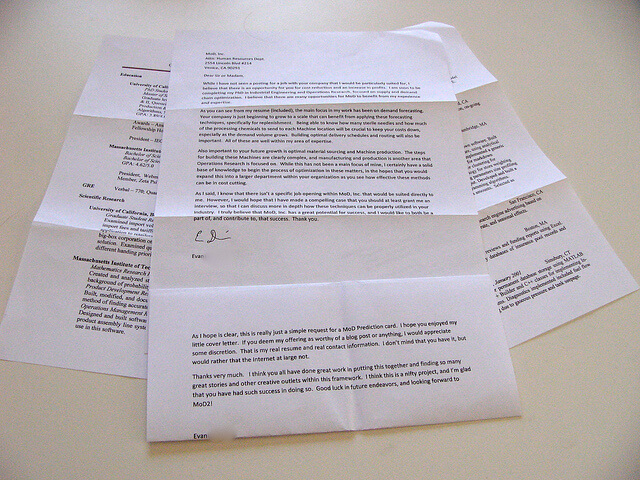First Impressions
Published on February 22, 2017, at 8:17 a.m.
by Josie Seavers.
With second semester in full swing, job hunting season has officially begun. You’ve updated your résumé, tweaked your cover letter and you’re ready to email your application to the PR agency of your dreams. But before you press ‘send’ and start to brush up on your interview techniques, don’t forget the importance of first impressions.
Whether you learned from firsthand experience, a professor or your career center, by now most of you understand the basics of business etiquette. You know you must conduct yourself in a professional manner during an interview and in the workplace — so why not apply the same level of professionalism to the application process?
If you want to be considered for an interview, your introduction to a potential employer needs to be a professional and positive representation of yourself. Here are a few tips on the little things to avoid when contacting an employer:

‘To Whom It May Concern:’
Often mistaken as an appropriate salutation for a business email, this greeting should be avoided at all costs. Not only is it thought of as outdated, but it gives the impression you don’t care enough about the job to find a direct contact. If an employer’s website doesn’t mention to whom you should direct your application, you have a couple options. LinkedIn is a good resource for finding the name of an employee along with his or her job title at the agency to which you wish to apply.
If you are unsure whether an employee is involved in the hiring process, or unsuccessful in finding a direct contact, then it’s time to pick up the phone. Although it may sound intimidating, an employer will be glad to tell you who you should direct your application to. Calling is often your best bet for obtaining accurate contact information and demonstrates that you are motivated.
‘Sent From my iPhone’
Take a second to recall an awkward moment you’ve experienced due to autocorrect: It’s likely you do not want to have a similar experience with a potential employer. Although it is common for professionals to email from their phones, especially in fast-paced industries like PR, it’s not the best method for sending your application materials.
Emails composed on a phone don’t always send the way you intended — attachments you include may not download properly, formatting may get altered when viewed on a computer, and grammar and punctuation errors can easily slip past you. It is important to take the time to compose an email on your computer so these errors are less likely to occur.
Sans cover letter
When you contact an employer to submit your application or inquire about a job opening, you may be unsure whether you need to attach a cover letter. Providing a cover letter is your first opportunity to persuade an employer to consider you for the job. Without it, you are unable to communicate how your qualifications will meet an agency’s needs. Many hiring employers will often discard applications that have been sent without a cover letter, which is why it’s crucial to always include one, even when it is not a requirement.
Following these little tips should help you to make a more positive first impression and advance you to the next step in the process. Happy hunting!





